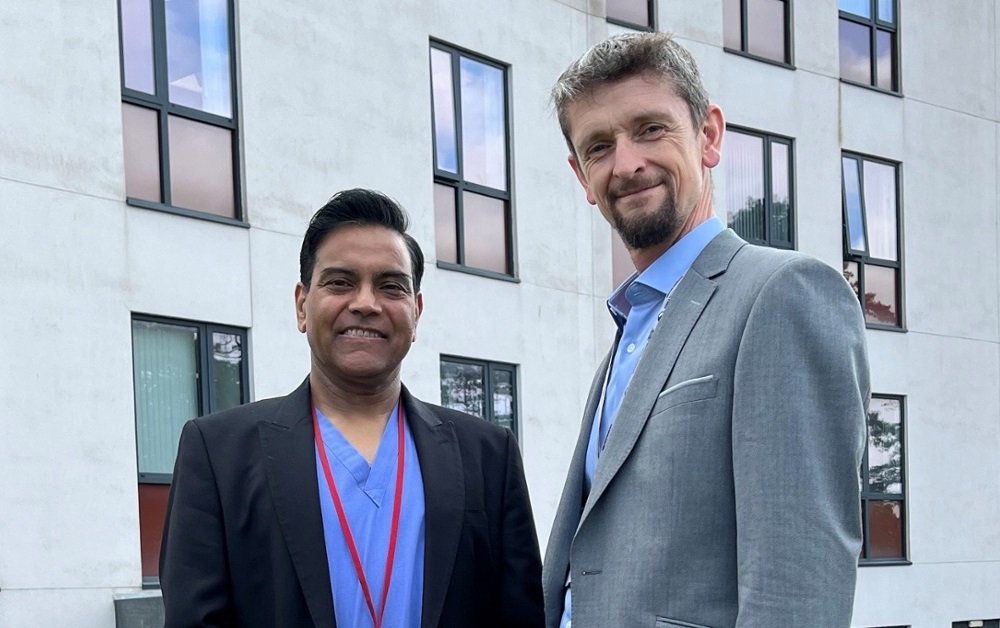New research aims to speed up diagnosis of lung cancer

A simple blood test could lead to the earlier detection and treatment of lung cancer thanks to a research study conducted in Wales.
Swansea Bay University Health Board and Swansea University are collaborating on a specific technique which aims to detect the disease more quickly and prevent patients from undergoing invasive and unpleasant tests.
Lung cancer is the third most common cancer in the UK, with more than 43,000 people diagnosed with the condition every year. The long-term five-year survival of individuals diagnosed with lung cancer is 14 per cent, but when diagnosed in its early stages (Stage I and II) when the cancer is small and treatable with surgery, that rises to over 65%.
The study is being led by Professors Dean Harris and Ira Goldsmith and governed by the health board’s research and development department with support from research delivery nurses, which are funded by Health and Care Research Wales.
More than 60 patients who have had lung nodules detected have volunteered to participate in the research by giving a simple blood test. Those results are currently being analysed as part of the study.
Massive impact
Professor Harris said: “The outcome of this study could be hugely significant for our patients and have a massive impact on their lives.
“Early diagnosis when a suspicious nodule is detected in the imaging process is vital for the best outcome of our patients.
“Our study is hoping to detect lung cancer quicker from a blood test which can then lead to treatment getting underway sooner.”
This work follows on from a similar project that Professor Harris led in 2023. That saw bowel cancer patients being offered a blood test to make sure it has not returned.
His latest study, which is expected to run until October, uses a technique called Raman spectroscopy to detect changes in blood samples related to lung cancer.
The technique measures the interaction of laser light with cells, chemicals and molecules within the blood to create a unique ‘fingerprint’ that is predicted to be specific for lung cancer in patients who have a lung nodule detected during X-rays or CT scans that may be associated with that form of cancer.
If successful, it is expected to have a significant impact on the diagnosis of lung cancer at a far earlier stage.
The study has been backed by £45,000 from by the Medical Research Council Impact Acceleration Account, which provides funding to speed up the transition from research to delivering it as part of healthcare.
Screening
Professor Harris said: “Current screening tests involve CT scans which can’t always tell if nodules are cancerous, so alternative tests are needed.
“It’s very exciting to be leading on this study, particularly as it could affect so many people in our community”.
“With our research we hope to develop a simple blood testing technique that will allow GPs and clinicians here in Swansea Bay, Wales and around the world to help diagnose lung cancer in its very early stages with greater certainty.
“It is a blood test we hope will also become part of the lung cancer screening protocol and assist the screening program to detect and diagnose early lung cancer when it is very small with much greater accuracy.
“By doing so, more patients will be able to receive curative treatment than is currently possible.”
Support our Nation today
For the price of a cup of coffee a month you can help us create an independent, not-for-profit, national news service for the people of Wales, by the people of Wales.





Da iawn wir!